
Woman Makes A Comment About Brother-In-Law’s Mustache After He Did The Same About Her Leg Hair, He Has A Breakdown
You know the saying “if you don’t have anything nice to say, don’t say anything at all”? Sometimes relatives need to be reminded of that sentiment. What is it about being family that can make people feel entitled to share every opinion they have, even on others’ bodies? One 19-year-old woman, Hortenhearsawho1 on Reddit, recently shared her frustration from a chaotic family dinner at her parent’s house and reached out to see if she was in the wrong. She detailed the experience between her and her brother-in-law on the subreddit “Am I the A***ole?”, which is popular for users sharing personal stories and asking readers if they handled the situation appropriately.
And read on to hear from Heather Widdows, professor and author of “Perfect Me: Beauty as an Ethical Ideal“, who Bored Panda was lucky enough to receive an interview from on the taboo topic of female body hair.
This woman’s brother-in-law decided to insert his opinion on her leg hair during what was intended to be a family dinner
Image credits: Julia (not the actual photo)
Image credits: engin akyurt (not the actual photo)
Unfortunately, these kinds of misogynistic comments about appearance are common for young women to hear. I don’t think being questioned about his mustache really qualifies as trauma for the man, but for children, being subjected to unwelcomed comments on their appearances can certainly impact their mental health. Being told what to wear, how to groom themselves and that they must be “pretty” are just a few of the expectations introduced to women at a young age, often negatively affecting their self confidence. The National Organization for Women, a non-profit in the US, reported that by age thirteen, 53% of American girls are “unhappy with their bodies”. That number skyrockets to 78% by the time they reach seventeen years old. Even in elementary school, 40-60% of girls in the US are already concerned about their weight or scared of becoming “fat”. Children are very impressionable and much more observant than often given credit for, leading to insecurities being noticed, taught and passed along. But the cycle can always be broken.
Image credits: hortenhearsawho1
In fact, it was not until the early 1900’s that eliminating body hair became the expectation for women in Western cultures, according to Rebecca Herzig in her book “Plucked: A History of Hair Removal”. Beauty standards do shift over time, but the stigma around female body hair has remained consistent, or even strengthened, since its onset. Professor Heather Widdows, author of “Perfect Me: Beauty as an Ethical Ideal, shared in an interview with CNN that, “Being hairless has come to be seen as the only ‘natural’ and clean way to present the body. Except it really isn’t.” Herzig told CNN that despite misconceptions about body hair being unsanitary, the contrary is more likely to be true. “Most hair removal practices tend to introduce new opportunities for abrasion and infection.” These women, along with countless others experiencing pressure to alter their bodies, simply want to make it clear that decisions about our appearances, including whether or not to shave, are personal choices.
In her interview with Bored Panda, Professor Widdows explained that the illusion of choice definitely comes into play when discussing topics such as this. When asked about feeling pressure to shave at a young age, she told us that “you can not ‘feel’ pressure, but still not have an option not to do something, so its much more complicated than whether you ‘feel’ like you have a choice”. She went on to say that, “If you read ‘Perfect Me’, you’ll see I have a whole chapter on ‘I chose it for me’ – this is now the only acceptable thing we can say, it’s a learned narrative, but that doesn’t mean it’s wholly free in the way suggested, all choices are shaped and constrained by social pressure. The ‘choice’ to remove hair or not is shaped by a society in which this is valuable.” In terms of what to tell young girls in response to unwelcome comments from family members, she calls to end body shaming across the board. “It’s lookism, and naming it helps to show the discrimination,” she explained. “It doesn’t matter who the comment is from, man or woman, family member or stranger, we should make negative comments unacceptable.”
Especially for someone raising daughters, like the brother-in-law in this story, it is important to destigmatize natural occurrences in women’s bodies, such as leg hair. Girls should feel empowered for their minds and capabilities, rather than scrutinized over physical details that hold no moral weight. Although the interaction was executed with a bit of sass, I hope Hortonhearsawho1’s nieces were paying attention to the way she defended her body. After all, a little leg hair surely never hurt anyone.
Readers have overwhelmingly sided with the woman, many responding that she is “NTA” (Not The A***ole) in the story
So he feels free to make unsolicited comments on her appearance but cries like a baby when she does it in return? Because his "manhood" is somehow more important?
Don’t forget how he’s brainwashed his wife to take his side when he’s dead wrong.
Load More Replies...So he feels free to make unsolicited comments on her appearance but cries like a baby when she does it in return? Because his "manhood" is somehow more important?
Don’t forget how he’s brainwashed his wife to take his side when he’s dead wrong.
Load More Replies...
 Dark Mode
Dark Mode 

 No fees, cancel anytime
No fees, cancel anytime 






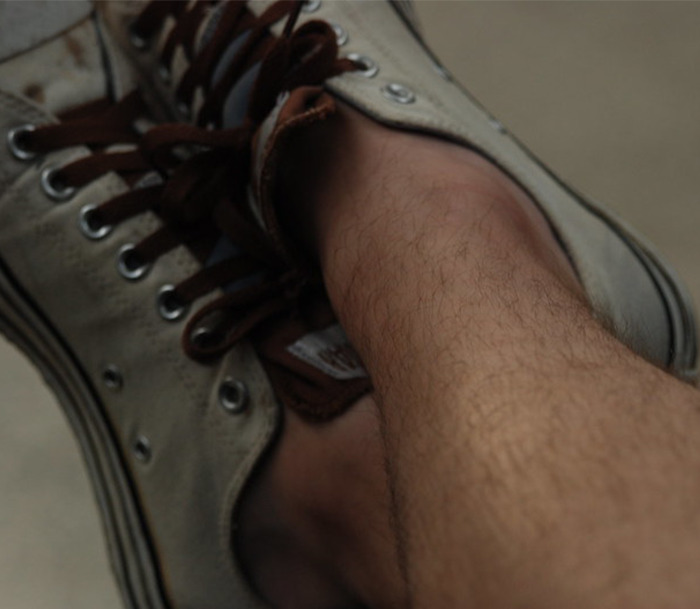
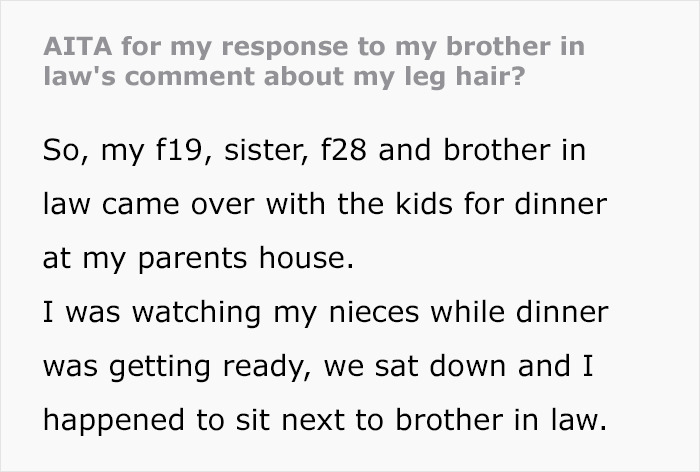
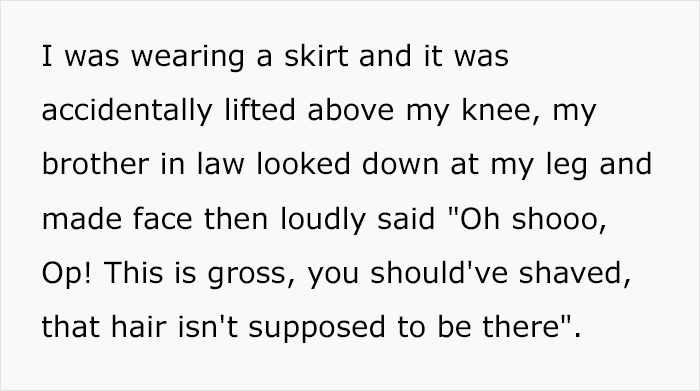
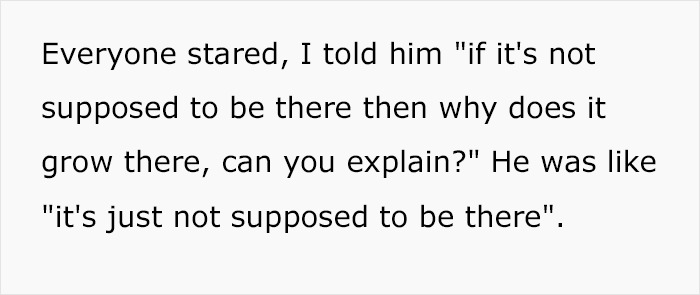
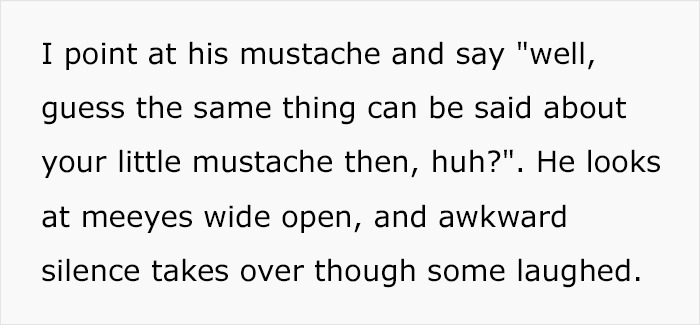
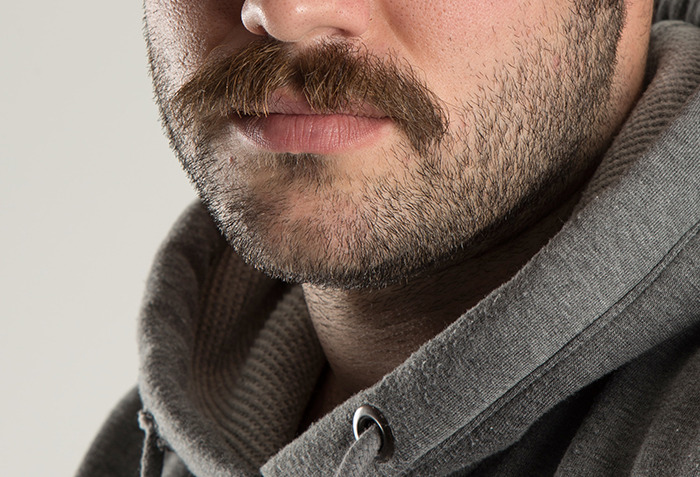

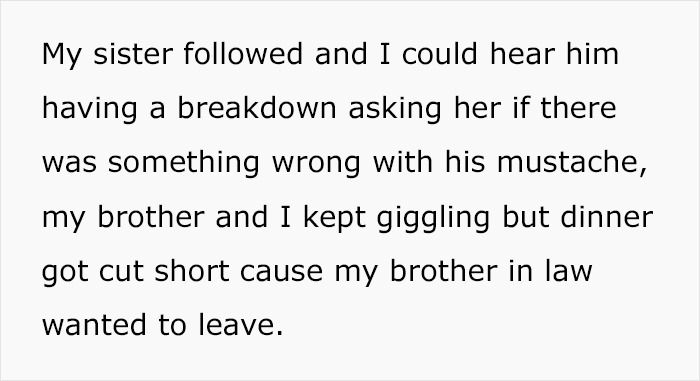
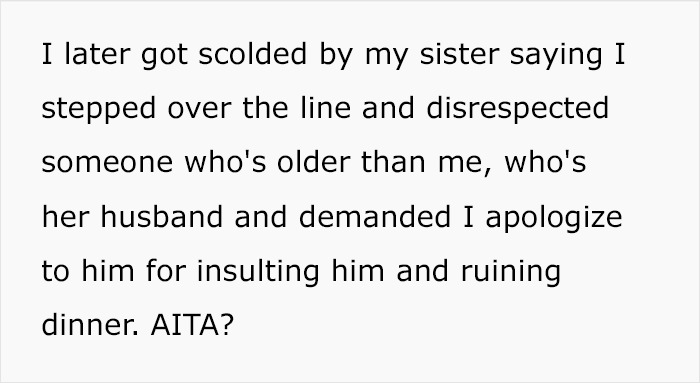
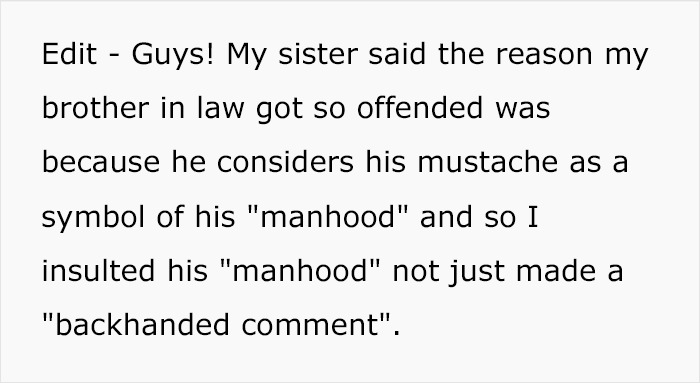
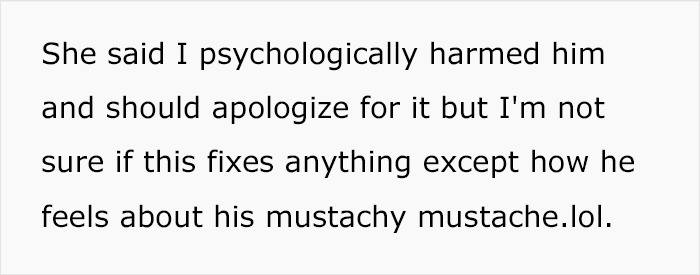
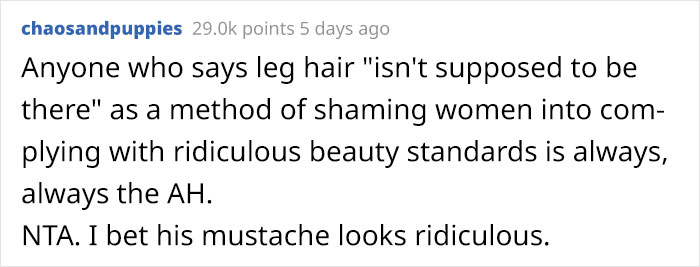
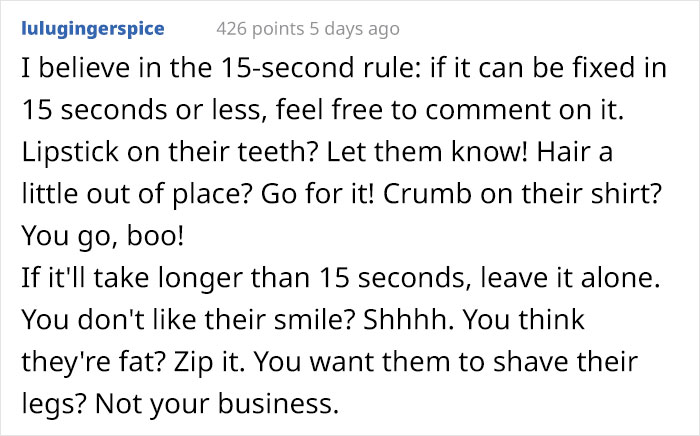
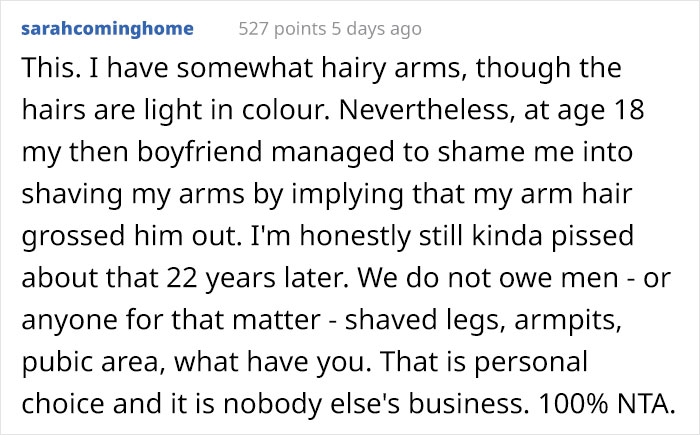


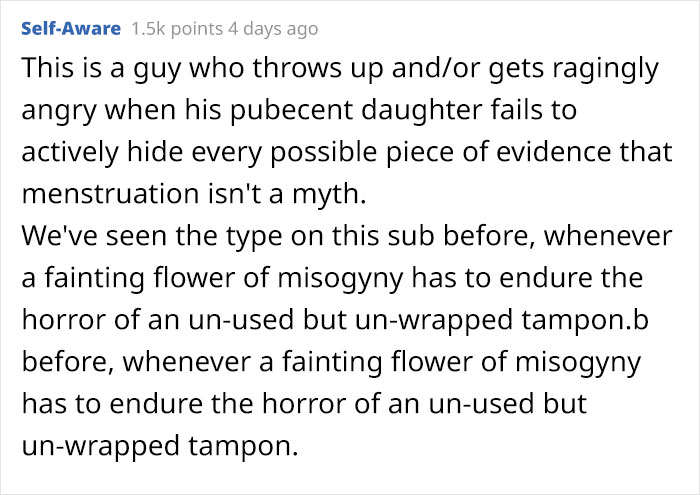
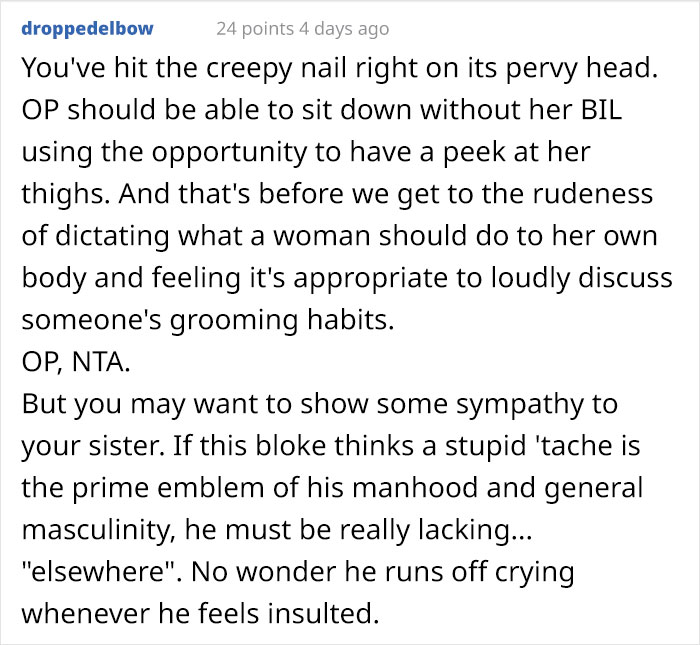
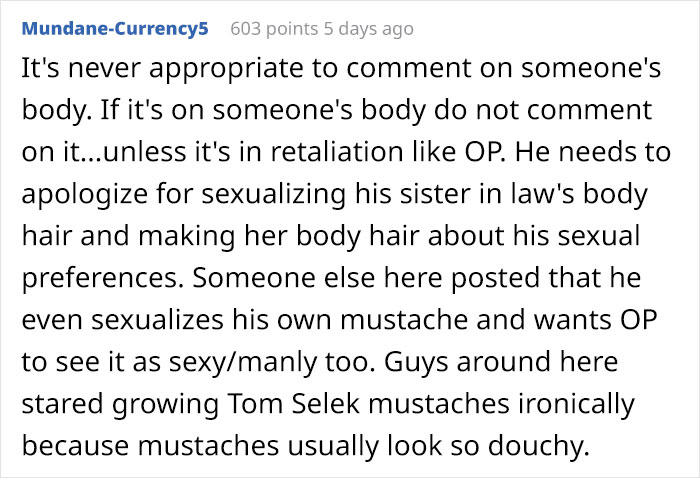
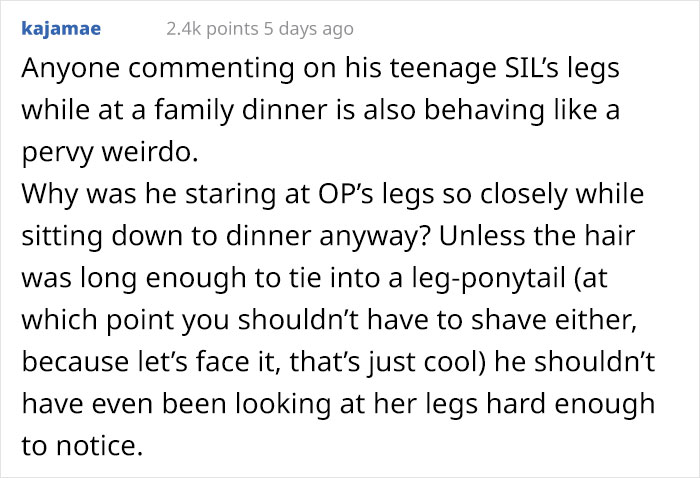


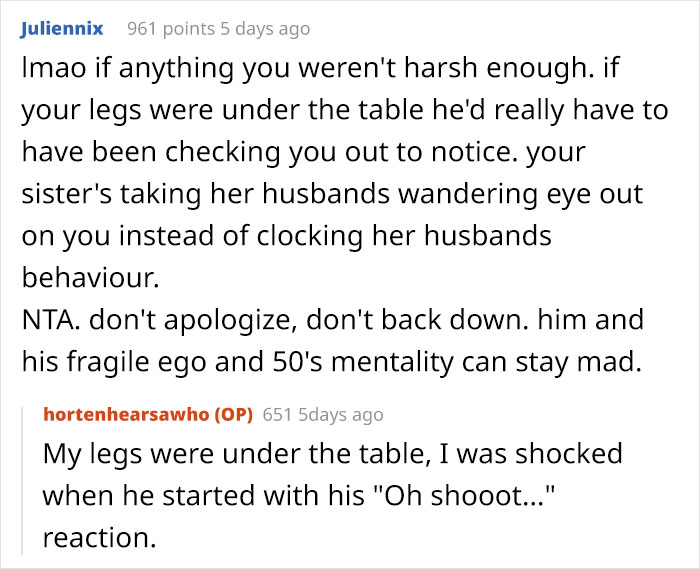
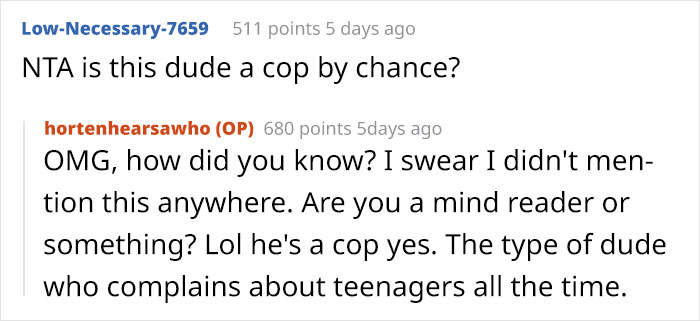












































118
68